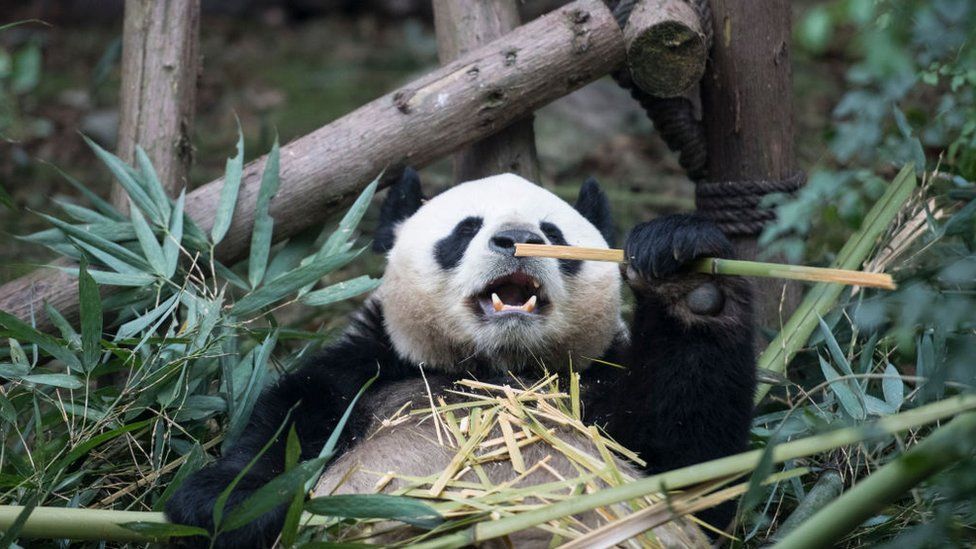- Get link
- Other Apps
- Get link
- Other Apps
 image copyrightGetty Images
image copyrightGetty ImagesGiant pandas are no longer classified as endangered but are still vulnerable, Chinese officials say.
The classification was downgraded as their number in the wild has reached 1,800.
Experts say that the country managed to save its iconic animal through its long-term conservation efforts, including the expansion of habitats.
China considers pandas a national treasure, but have also loaned them to other countries as diplomatic tools.
The latest classification upgrade "reflects their improved living conditions and China's efforts in keeping their habitats integrated", said Cui Shuhong, head of the Ministry of Ecology and Environment's Department of Nature and Ecology Conservation at a news conference.
The new classification comes years after the International Union for Conservation of Nature (IUCN) had already removed the animal from its endangered species list and re-labelled it as "vulnerable" in 2016.
At the time, however, Chinese officials had disputed the decision, saying that it could mislead people into believing that conservation efforts could be relaxed.
This week's announcement by China's environmental ministry is the first time the animal's status was changed on its own endangered species list, which uses similar standards as the Swiss-based IUCN.
Chinese social media users were delighted at the news, saying that it is "proof" that conservation efforts are worth it.
"This is the result of years of hard work. Well done to all the conservationists," one person wrote on microblogging platform Weibo.
 image copyrightGetty Images
image copyrightGetty ImagesExperts have said that the success is largely due to Chinese efforts to recreate and repopulate bamboo forests. Bamboo makes up some 99% of their diet, without which they are likely to starve.
Zoos have also attempted to increase numbers via captive breeding methods.
You might also be interested in:
Since the 1950s China has used pandas to forge political friendships across the globe. Here's a look at where the animals have been used in diplomacy in the past.
from BBC News world-asia https://ift.tt/3wxlK9z
via IFTTT
Comments
Post a Comment